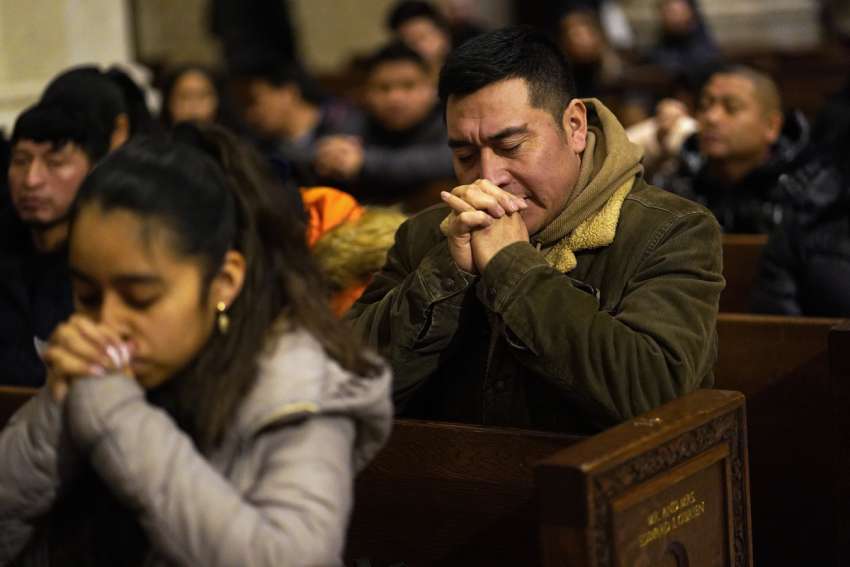“Faith must always be internalized, but it is always expressed, strengthened and lived out with others,” Cardinal Dolan wrote.
His words were pointed to the particular topic of so-called “Christmas and Easter” Catholics who pack the Church’s pews for its two great celebrations but are otherwise too busy to fulfill their obligation for weekly Mass attendance.
In his inimitable fashion, Dolan took the opportunity to gently chide not just Mass-missing lay Catholics, but also clergy who roll their eyes at them in exasperation. At least, he argued, those semi-annual minimal attendees are making the effort of “coming home” for major Holy Days and holidays.
“I am always heartened to see them,” he wrote.
Digging deeper into underlying cause and effect, the Cardinal discerned a worrisome disconnect in the relationship between faith personal and faith familial, i.e., of faith ineradicably lived within the family of the Church. “Faith is deeply personal, but it isn’t private,” Dolan wrote. “By its nature, faith is communal. A congregation is a spiritual family.”
Like all families, membership isn’t optional based on the status of the NFL season or having to take the cats to their Persian language lessons Sunday morning.
“Members of a spiritual family…bear an obligation to remain a part of it. In the Scriptures, it’s clear God prefers to form a people, a community, and not simply a collection of atomized individuals,” he wrote.
The phrase “not…atomized individuals” is critical. It contains for Catholics, even those with spotty attendance records, a profound call to take from Holy Mother Church into the wider society around us. We can use our faithful knowledge of God’s clear preference to appeal to our neighbours for a return to community, to reformation into a people, for a turn away from the inherently destructive ideology of atomized individuality.
For decades now, the Church has engaged courageously and vigorously in a doomed effort to teach Canadian, North American, Western societies that certain acts are always, everywhere, in and of themselves, wrong wreaking. The assertion was entirely right. The intention entirely noble. And there had to have been a point where victory (used in a purely secular sense since spiritually, we have already won victory in Christ) was within reach.
Yet here we are. And where are we? In a world, a country, a society where, days before Easter, a healthy 27-year-old Calgary woman was given clearance by a court of law to have herself killed by medical agents of the State simply because she no longer feels life is worth living. Her loving family had appealed to a judge to set aside medically approved permission for her to die by lethal injection. Their heart wrenching plea was rejected, though they were thrown the legal bone of being granted 30 days for further appeal.
In any society still possessing a shred of community vitality, of the familial bonds of a people, such a horrific outcome would be immediately recognized as the apogee (nadir?) of the ideology of atomized individuality. It would be seen as a grotesque perversion of admirable liberal ideals of private autonomy. There would be no hesitation to acknowledge that we are so far gone in the loss of faith in our collective self that State-administered death now becomes us.
Because we as Catholics know that Christ’s Resurrection ensured death no longer has the last word, it falls to us to expand Cardinal Dolan’s message — and that of many others such as Cardinal Thomas Collins, Archbishop Francis Leo, indeed Pope Francis himself — into a conversation with the neighbours we are commanded to love as spiritual family. It’s not enough to seek to convince them that so-called Medical Aid in Dying is wrong and bad. Without hectoring, without proselytizing, we must seek to call them back to remembrance that faith is the ground of community to be expressed, strengthened, and above all, lived out with others.

